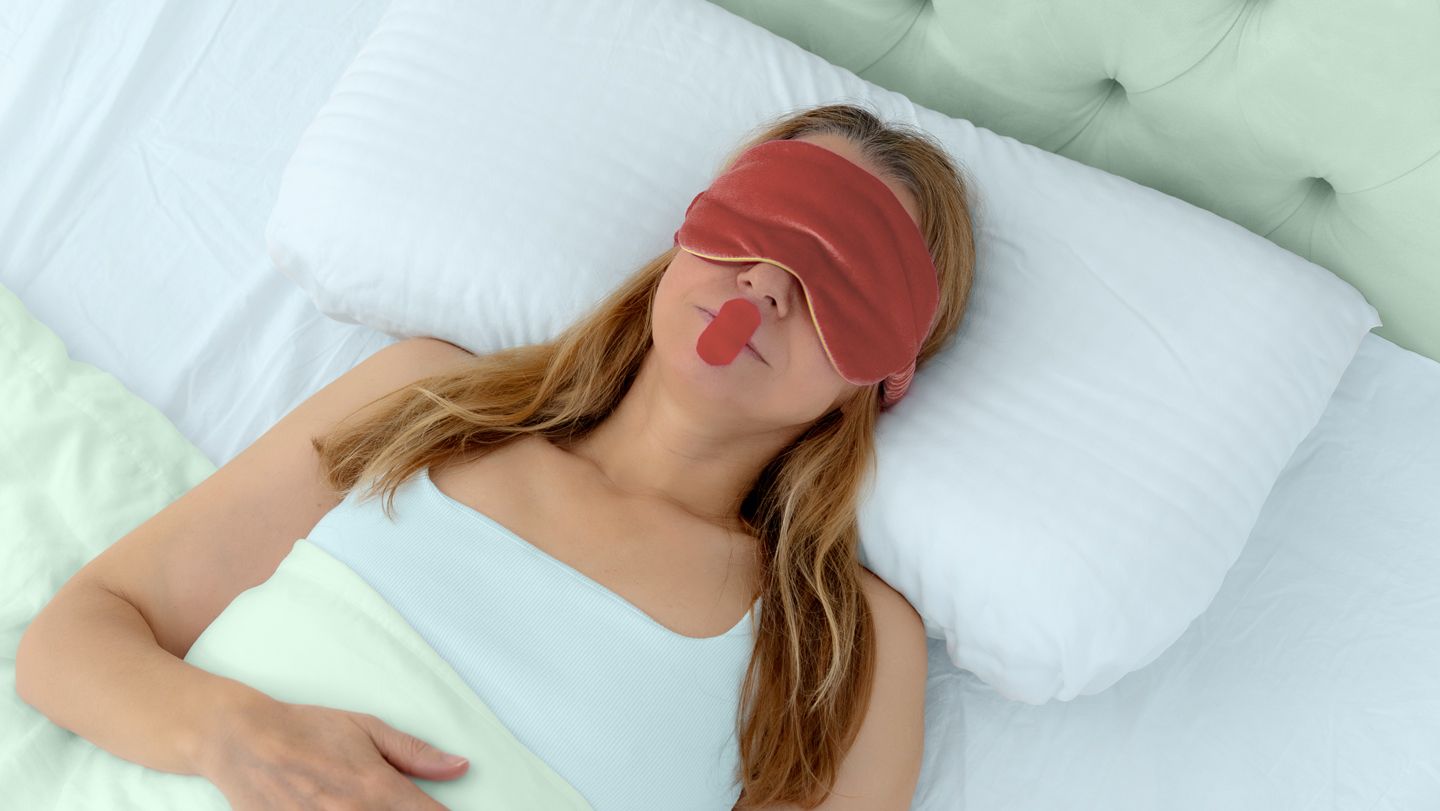If you or a sleep partner notices that you snore during the night (or you have any other symptoms), you may have obstructive sleep apnea and you should talk to a doctor, Verma says.
“Untreated obstructive sleep apnea has long-term consequences for health and well-being, including heart issues, stroke, and greater difficulty controlling diabetes and high blood pressure,” Kearney says. “It should be looked into — not just, ‘Hey, I snore and I’ll tape my mouth.’”
Verma agrees that nose breathing does filter and moisten air. “Your respiratory system begins in your nose,” she notes.
But, she adds, it’s also natural to breathe through your mouth sometimes. Talk to a doctor if you seem to breathe through your mouth a lot of the time. “You may have nasal polyps, a deviated septum, or another type of nasal obstruction,” she says.
Mouth taping could cause problems if you have nasal congestion, allergies, asthma, or other respiratory issues, Verma says. The tape could irritate skin on and around your lips. Some people may also be allergic to the adhesives on mouth taping products, she adds.
Mouth taping could also be harmful when used with sedatives like sleep medications or alcohol, Huyett says. If you use sedatives, you’re less likely to wake up and remove the mouth tape if you’re having difficulty breathing.
Some physicians think more regulation is needed regarding taping products and the harms they could cause if they’re not used with a physician’s guidance. “The devices should be regulated and prescribed by a physician’s recommendation, or at the very least, a disclaimer on its use and potential risks should be required to be printed on their packaging,” says Andrew Huang, MD, an associate professor in the Department of Otolaryngology–Head and Neck Surgery at Baylor College of Medicine in Houston.
With all of that in mind, the first step is to bring any concerns about snoring to your doctor, rather than tape your mouth.
Read the full article here




